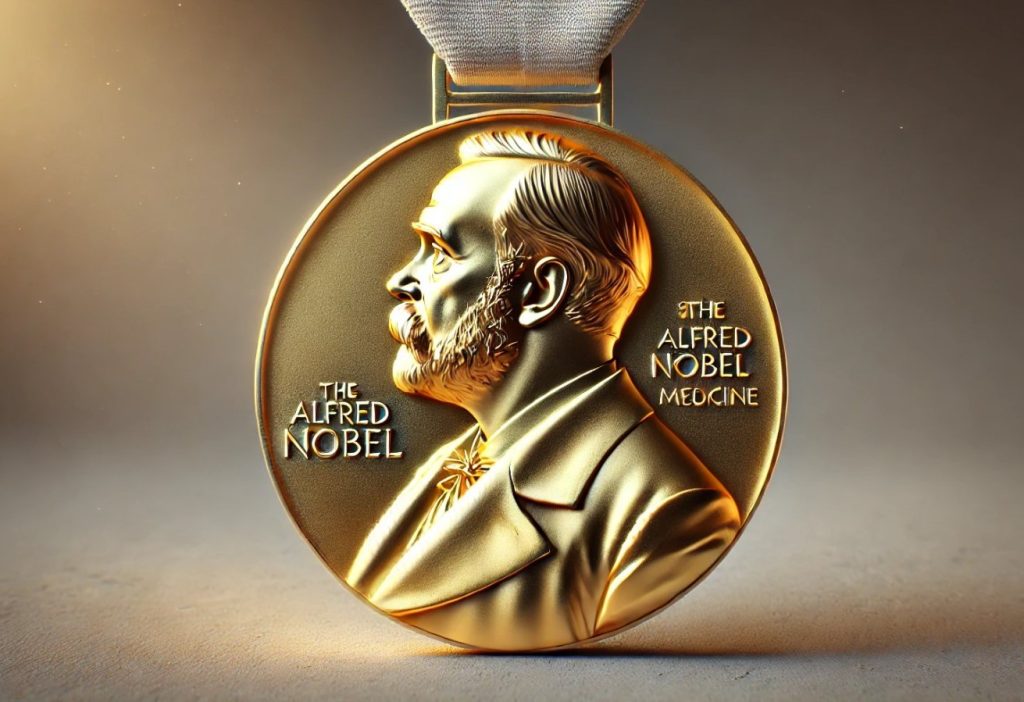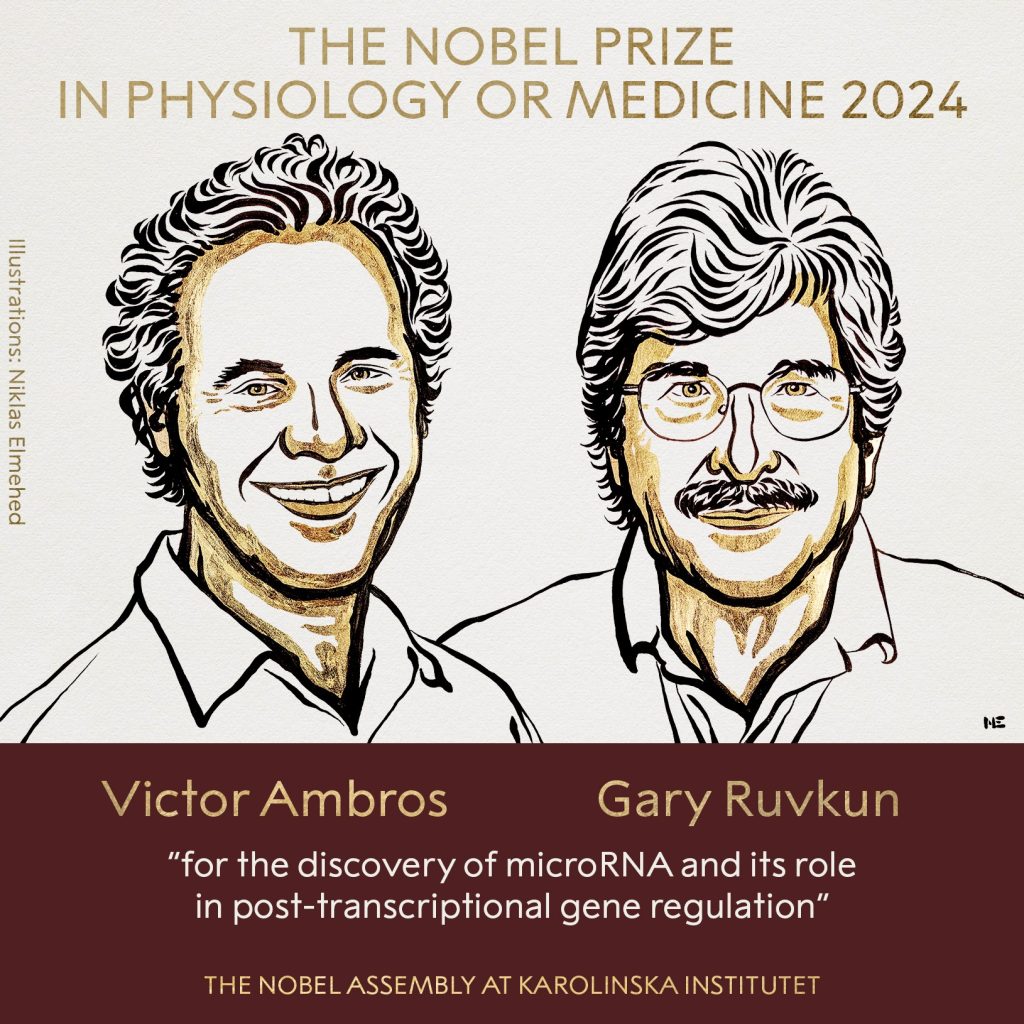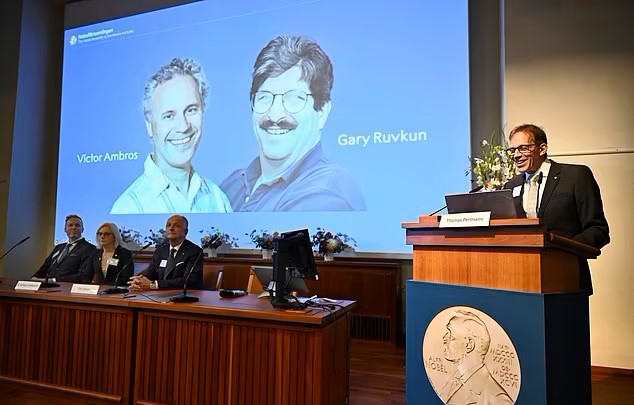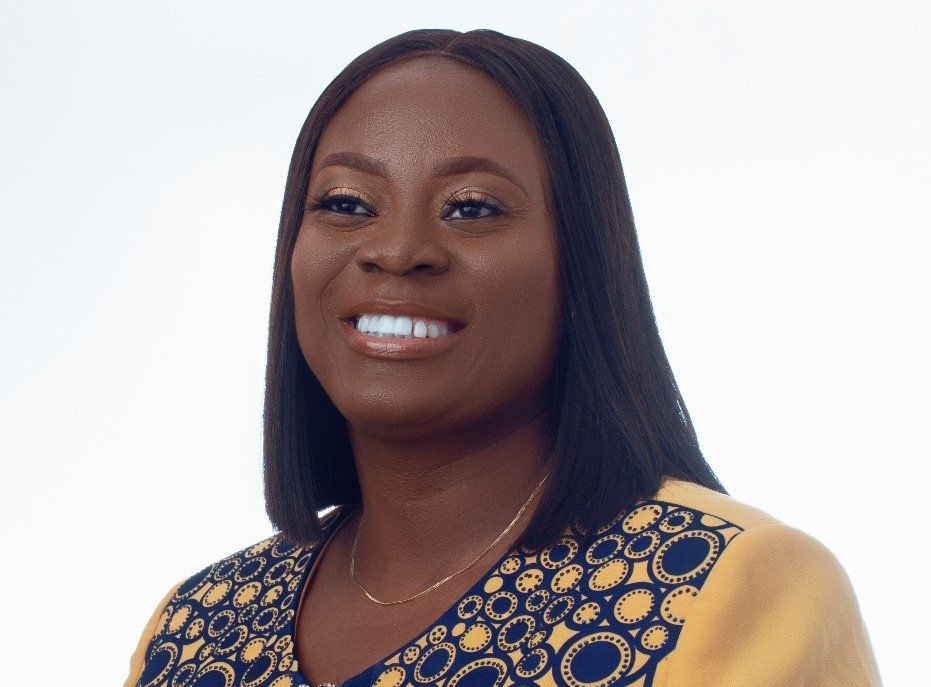Two American scientists, Victor Ambros, and Gary Ruvkun have won this year’s Nobel Prize in Medicine as announced on Monday, October 7, for their outstanding work in discovering “microRNA“
Their work helped to explain the biomolecular processes involved in cellular differentiation and specialisation, especially as it relates to all cells beginning from one cell and having the same genetic codes embedded in all of them.

The Nobel Assembly, the group that manages the prestigious award, gave its reason for selecting the laureates which is the discovery of a new class of small RNA molecules that play a major role in gene regulation.
The discovery entailed a new principle for gene regulation. Victor Ambros described micro RNA as a “communication network amongst genes that enables the cells in our bodies to generate all kinds of different complex structures and functions“.

Victor R. Ambros is an American developmental biologist and a professor at the University of Massachusetts Medical School. On the other hand, Gary B. Ruvkun is an American molecular biologist and professor of genetics at Harvard Medical School in Boston.
Both began studying this phenomenon in the 1980s but their work was not accepted due to the premise that it was specific to other species. But since 2000, their work has been seen to support the theory that this mechanism exists in all animals.
Understanding microRNA
Most cellular functions in the body are regulated and controlled by proteins. To produce proteins, the body reads DNA molecules using messenger RNA, which then translates the information into amino acids, all of which are put together to form proteins.
MicroRNA comes into play to help the body communicate between genes, allowing for greater synergy as the cells produce different proteins for different functions.

The discovery was also hailed as having many potential and beneficial applications by Professor Gunilla Karlsson Hedestam of the Karolinska Institute.
Past winners of the Nobel medicine prize include many famous researchers and doctors such as Ivan Pavlov in 1904. He is best known for his experiments on behavior using dogs, and Sir Alexander Fleming, who shared the 1945 prize for the discovery of penicillin and its use as an antibiotic which was used to save lives during the Second World War.
Last year’s medicine prize was awarded to the runaway favorites Katalin Kariko, a Hungarian scientist, and U.S. colleague Drew Weissman, for discoveries that paved the way for COVID-19 vaccines.
Comment, Like 👍, share this article, and Follow us on our social media handles.








